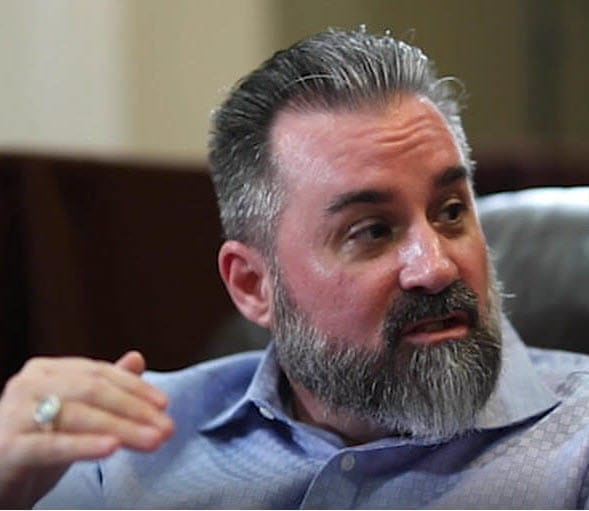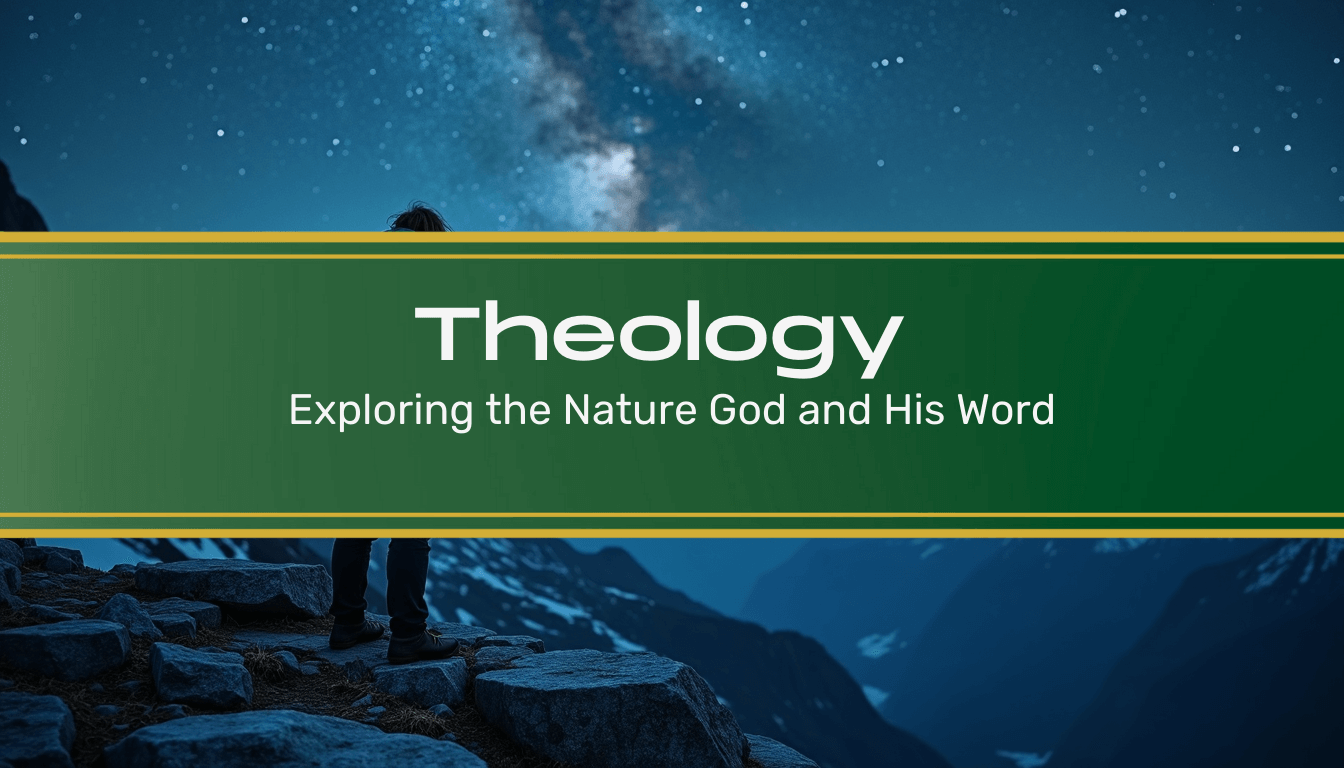
Evolution vs Creation
Why It Takes More Faith to Believe in Atheism
Here's what fascinates me about the evolution vs creation debate: critics call Christians "blind faith" while trusting explanations that rely on unobserved, unrepeatable events—Big Bang beginnings, abiogenesis, and chance mutations producing complex, interdependent systems. They dismiss design yet accept processes that, in practice, function like miracles labeled "natural."
I used to think this was simply science vs. religion. Looking closer, I realized both sides require faith; the real question is where you place it. Do you trust untested, once-only scenarios that stretch known scientific laws, or do you trust a Creator whose design shows up everywhere from DNA to the cosmos?
The evidence leans toward design, not raw chance. In the sections that follow I'll outline the faith assumed by atheistic evolution, the six steps evolution needs to work, why the Cambrian Explosion matters, and the strongest evidence pointing to intelligent design.
Sharp Edge: If you need more faith to believe in your "scientific" worldview than religious people need to believe in God, you might want to reconsider who's really being irrational.
The Faith Required for Atheistic Evolution
Something from Nothing
Some explanations for origins hinge on a startling claim: everything emerged from "nothing"—no matter, no energy, no space, no time—and then, somehow, the universe began. That idea is framed as cosmology, not theology, but it asks readers to accept a one-time, unobserved event as the ultimate explanation.
That raises immediate questions about how "nothing" is defined and how it squares with conservation laws. Many cosmologists discuss pre‑Big Bang quantum states or vacuum fluctuations rather than a metaphysical absolute nothing; careful wording matters here. Christians, by contrast, point to Genesis 1:1—an eternal Creator who brings existence out of nonexistence—an explanation that requires a different kind of faith.
Life from Non-Life
Abiogenesis—the hypothesis that life began from nonliving chemistry—remains an active research area. Scientists have made progress producing building blocks (amino acids, nucleotides) under simulated early‑Earth conditions, but a self‑sustaining, information‑rich cell has not been assembled in the lab. Saying "never" risks overstating the case; it's more accurate to say no full cell has yet been produced from purely abiotic processes in controlled experiments.
Even the simplest cell carries vast informational and functional complexity that researchers are still trying to explain. That gap is why intelligent design argues a planning mind is a better fit for the origin of life than chance chemistry alone.
Information from Chaos
DNA stores instructions in a digital‑like code—organized sequences that specify proteins and regulatory logic. Information theory and everyday experience tie information to an intelligent source more often than to random noise. Critics of design argue natural selection plus random mutation can build information over time; defenders of design reply that the origin of the information‑encoding system itself remains unexplained by blind processes.
Think of it this way: random edits plus selection can refine existing text, but where did the initial meaningful text come from? That is the debate at the heart of information and origins.
Irreducible Complexity from Simple Parts
Some biological systems behave as if multiple parts are required all at once for function. Examples often cited include the bacterial flagellum, the vertebrate blood clotting cascade, and the vertebrate eye. The claim is not that gradual modification never happens, but that certain systems show interdependence that challenges simple stepwise accounts (this remains a point of controversy among scientists).
In short: proponents of naturalistic origins lean on a collection of once‑only events and long, contingent pathways; proponents of intelligent design point to information, complexity, and interdependent systems as evidence that design is a plausible, arguably simpler, explanation.
The Six Types of Evolution
Evolution as a grand explanation depends on several distinct steps working in sequence; if one step fails, the whole story weakens. Below are six key stages, each summarized in one sentence with a short comment.
Cosmic Evolution (Something from Nothing)
The cosmological model says the universe began in a very hot, dense state (commonly called the Big Bang), but questions remain about how a one‑time origin came about and what "nothing" really means in physics—cosmologists often invoke quantum states or vacuum fluctuations, not a metaphysical void.
Chemical Evolution (Elements from Hydrogen)
Big Bang nucleosynthesis produced mainly hydrogen and helium; heavier elements form in stars via nuclear fusion and supernovae, but the stepwise account of how the periodic table arose involves complex astrophysical processes that must be chained together for the model to hold.
Stellar Evolution (Stars from Gas Clouds)
Stars form in dense regions of molecular clouds (we observe protostellar regions today), yet the details of collapse, angular‑momentum transfer, and planet formation are active research topics—stellar birth must be reliable enough to seed chemical evolution.
Organic Evolution (Life from Non‑Life)
Abiogenesis proposes that chemistry crossed the gap into biology; experiments have produced biological building blocks, but no lab has yet produced a self‑replicating, information‑rich cell from purely abiotic materials (so far, origin‑of‑life remains a hypothesis under development).
Macro‑Evolution (New Kinds from Old Kinds)
Macro‑evolution refers to large‑scale transitions—new body plans and major innovations across deep time. Paleontology records many examples of transitional traits (debated in interpretation), so the claim that macro change never occurs should be stated carefully: the question is whether micro processes accumulated into the kinds of change claimed.
Micro‑Evolution (Variation Within Kinds)
Micro‑evolution—variation within populations via mutation and natural selection—is directly observed (antibiotic resistance, selective breeding). The key dispute is whether these processes, given enough time and the right mechanisms, can account for macro‑evolutionary novelties.
Summary: these six steps form a chain—cosmology, chemistry, stars, abiogenesis, macro change, and micro change—and each is a model within science. In the rewrite, present this as a concise table or infographic and then focus on the two weakest links you believe matter most (origins of life and macro‑change) with one sharp example each.
The Cambrian Explosion: Evolution's Nightmare
What Happened
About 540 million years ago, a startling burst of complex animal life appears in the fossil record—the Cambrian Explosion. In a relatively short geological span, many major animal body plans show up with eyes, nervous systems, and specialized tissues already in place.
Why It Matters
Darwin expected slow, gradual change with countless transitional forms. The Cambrian pattern—rapid appearance, followed by long periods of stasis—doesn't fit that neat picture. Paleontologists debate the tempo and causes (some point to taphonomy, ecological opportunity, or developmental genetics), but the apparent suddenness remains a central question for evolutionary models.
The Missing Ancestors
Many Cambrian animals, like trilobites, possess highly complex features such as compound eyes. While precursors and Ediacaran organisms are known, the fossil record shows large gaps in the transition from simpler pre‑Cambrian life to the fully articulated Cambrian forms—gaps that invite different interpretations about process and timing.
Bottom line: the Cambrian event challenges neat, gradual narratives and is best treated as a crucial data point—one that any model (evolutionary or design) must explain. In the rewrite, compress this to a short timeline (Ediacaran → Cambrian) and use the trilobite eye as the single, vivid example.
Evidence for Intelligent Design
Fine‑Tuning of the Universe
Physical constants—gravity, the strong force, electromagnetic coupling—sit in narrow ranges that allow atoms, stars, and chemistry to exist. Small shifts in several of these parameters would make life, as we know it, impossible (estimates of sensitivity vary by parameter and source [cite]). The astonishing precision of these settings is strong evidence that the universe is configured for life, which proponents of intelligent design argue is more plausibly explained by purpose than by blind chance.
Irreducible Complexity in Biology
Certain biological systems show tightly integrated parts that produce function only when assembled. Examples commonly cited include the bacterial flagellum (a rotary motor with dozens of protein components), the blood clotting cascade (a chained sequence of proteins), and the vertebrate eye. Critics debate whether these systems can arise by stepwise modification; supporters of design point to interdependence and ask how cumulative selection could favor nonfunctional intermediates (this remains contested in scientific literature).
Information in DNA
DNA carries specified functional information—sequences that code for proteins and regulatory networks. Information in practice is typically traced back to an intelligent source, and the origin of the first information‑encoding systems remains a central puzzle for naturalistic models. While mutation plus natural selection can modify and optimize existing information, the emergence of the information‑system itself is a separate explanatory challenge.
The Fossil Record
Patterns in the fossil record often show rapid appearances of complex forms, extended stasis, and gaps between major groups. Paleontology records many sudden radiations (the Cambrian is the most famous) as well as long periods with little change. Those patterns are read differently by different models: evolutionary biologists explain them by rates, environmental change, and preservation biases; proponents of design read them as consistent with discrete origins of major body plans.
Bottom line: fine‑tuning, information, and integrated biological systems together form a cumulative case that intelligent design proponents argue better explains the data than chance and unguided processes. For readers who want sources, include references on fine‑tuning, origin‑of‑life reviews, and technical critiques of irreducible complexity in a compact “further reading” box.
Why Some People Reject Creation
Resistance to creationist ideas isn’t only about data—it's about philosophy, institutions, and definitions. Many scientists adopt methodological naturalism as a working assumption (they restrict explanations to natural causes), which for some observers looks like a prior commitment that rules out design from the start. At the same time, academic incentives and peer pressure can make dissent costly; documented cases exist where careers suffered after public challenges to dominant views. These social dynamics shape which ideas get attention, funding, and publication.
Misunderstanding of Faith
Faith is often caricatured as believing without evidence. Biblical faith, as the author sees it, is trust grounded in evidence from creation, Scripture, and history. Scientists, too, have foundational assumptions—so the real question is which set of assumptions better fits the data: the naturalistic model or the design model?
Living with Confidence in Creation
Be methodical, not combative: study the arguments, check sources, and learn the limits of what operational science can test. Origins questions involve unique, unrepeatable events—cosmology and origin‑of‑life work at the edge of what experiment can reproduce—so apply careful reasoning and honest weighing of evidence.
We don't sidestep hard topics. We face them with Scripture, honesty, and respect. Start by exploring our category pages—they're practical and built to help you think biblically. If what you find is useful, take your time and drill down into the articles within each category. If you do, you'll learn a lot—and you'll be better equipped to live like Christ.
The Existence of God: Evidence for a Creator - Explore the philosophical and scientific arguments that point to God's existence.
The Reliability of the Bible: Trusting God's Word - Discover the historical and archaeological evidence supporting Scripture's trustworthiness.
Intelligent Design - Discover how the complexity and fine-tuning of the universe point to an intelligent Creator.
The Problem of Evil: Why Does God Allow Suffering? - Address one of the most challenging questions in apologetics with biblical wisdom.
Put This Into Practice (short list)
• Read one accessible book each on origins and on critiques of origins (e.g., an origin‑of‑life review and a design case study).
• Focus on three concrete examples: the bacterial flagellum, the blood‑clotting system, and the Cambrian fossil record—learn the basic claims and the main scientific counterarguments.
• Practice explaining one clear point in two minutes: pick a single argument (fine‑tuning, information in DNA, or a fossil example) and explain it plainly.
Sharp Edge: If your worldview requires you to believe that explosions create order, death creates life, and chaos creates information, you might want to reconsider who's really being unscientific.
Conclusion
The evolution vs creation debate boils down to worldviews: both sides read the same data through different philosophical lenses.
When you weigh the fine‑tuning of the cosmos, the information in DNA, and the complexity of living systems, intelligent design presents a coherent explanation that deserves honest consideration alongside naturalistic models.
If you want to dig deeper, start with the short practical steps in the "Put This Into Practice" box—pick one argument, study its strongest evidence and counterarguments, and judge for yourself.
The universe declares the glory of God (Psalm 19:1).

Chris Daniel, just a servant of Christ calling others to be ready. Like the Bereans, I try to examine Scripture daily to see if what I hear is true. If you're struggling to live as we're called, you're still in the fight. Don't give up.
Category 2 - Christian Apologetics

Category 3 - Bible Study

Category 4 - Theology


"Most middle-class Americans tend to worship their work, work at their play, and play at their worship. As a result, their meanings and values are distorted. Their relationships disintegrate faster than they can keep them in repair. Their lifestyles resembles a cast of characters in search of a plot." - Gordon Dahl
"The Bible is a reliable collection of historical documents written down by eyewitnesses during the lifetime of other eyewitnesses that report supernatural events that took place in fulfillment of specific prophecies and claimed their writings were divine rather than human in origin."
- Dr. Voddie Baucham on 2 Peter 1





